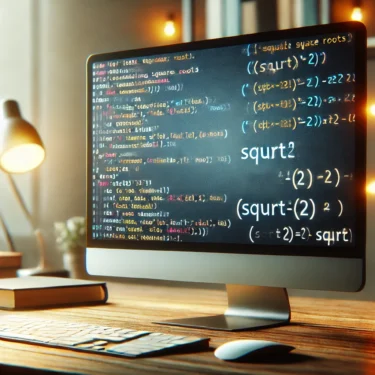1. scanf Function Overview
In learning the C programming language, one of the most used methods for entering data into a program is the scanf function. It acts like the program’s “listener” that stores user-entered data into specified variables.
Basic Syntax of scanf
scanf("formatSpecifier", &variable);Here the key elements are the “formatSpecifier” and the ampersand (&) before the variable. The format specifier designates the type of data to be entered, and & indicates the address of that variable. By following this rule, scanf can correctly process user input.
int num;
scanf("%d", &num);In this way, scanf gives the program input and makes that data usable.
2. Commonly Used Format Specifiers
%d: for integers%f: forfloattype floating-point numbers%lf: fordoubletype double-precision floating-point numbers%s: for strings (terminated by whitespace)%c: for a single character
double val;
scanf("%lf", &val);3. Processing Multiple Inputs Simultaneously
int age;
float height;
scanf("%d %f", &age, &height);
printf("Age: %d, Height: %.2f\n", age, height);4. Input Validation and Error Handling
int age;
printf("Please enter your age (0–120): ");
if (scanf("%d", &age) == 1 && age >= 0 && age <= 120) {
printf("The entered age is %d years.\n", age);
} else {
printf("Invalid age.\n");
}5. Clearing the Input Stream
When using scanf, you may feel like “previous input remains”. This happens because newline characters (\n) etc. remain in the input stream.
scanf("%*[^n]");
scanf("%*c");This lets you skip any newline or other characters remaining in the input buffer. However, during loop processing you should avoid the non-standard fflush(stdin), and use methods like the above for safety.
6. Common Pitfalls and Best Practices
- Matching format specifier: Align the data type and specifier
- String length caution: When inputting with
%s, consider buffer size - Clearing the stream: Avoid leaving newline characters behind
7. Advanced Usage | Sophisticated scanf Techniques
char name[20];
printf("Please enter your name: ");
scanf("%19s", name); // buffer-safe measure
printf("Hello, %s!\n", name);Summary
The scanf function is a fundamental input method in C. Once you understand format specifiers, error checking, and input-stream handling, you can use it safely. Pay special attention to leftover input buffers and buffer overflow issues.




